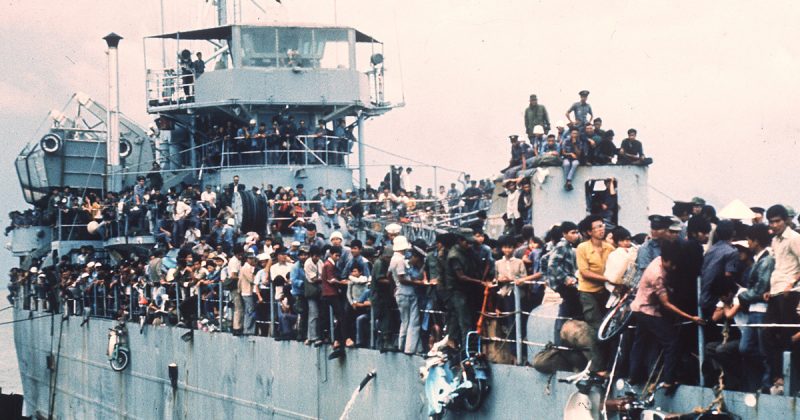
Fifty years after the fall of Saigon, the echoes of the Vietnam War continue to reverberate through the lives of Vietnamese refugees who resettled in the United States. For many, the promise of refuge in America has been tragically undermined by a complex interplay of immigration policies, evolving US-Vietnam relations, and the lasting trauma of displacement.
One woman, speaking anonymously for fear of reprisal, recounts her family’s ongoing struggle. Having fled Vietnam in the 1970s, she now finds herself facing the potential deportation of a family member under stricter immigration enforcement. This echoes the fear and uncertainty she experienced decades ago, highlighting the cyclical nature of trauma and displacement for her community.
This isn’t an isolated case. Thousands of Vietnamese nationals face deportation orders, many stemming from past convictions, sometimes decades old. Advocates point to a disproportionate targeting of Southeast Asian communities, three to five times more likely to be deported based on old convictions than other groups. This disparity is attributed to their refugee status, the challenges of assimilation, and the aggressive deportation tactics of previous administrations.
The ‘migration to school to prison to deportation pipeline’ is a stark reality for many. Lack of resources upon resettlement, entanglement with the criminal justice system, and the lack of understanding of the US legal system have all contributed to this cycle. Many were placed in under-resourced communities, faced language barriers and bullying in schools, and lacked adequate support to navigate a new and often hostile environment.
The changing geopolitical landscape further complicates the situation. The Trump administration’s pressure on Vietnam to accept deportees, coupled with renegotiated agreements, has left many vulnerable. Experts suggest that Vietnam’s increasingly fragile relationship with China has influenced its willingness to cooperate with US deportation efforts, creating a situation where refugees face potential deportation to countries they’re unfamiliar with.
The scale of the resettlement effort following the Vietnam War was immense—nearly 590,000 refugees from Vietnam, Cambodia, and Laos arrived in the US between 1980 and 1990. Yet, these communities continue to face significant challenges. High rates of poverty, low educational attainment, and ongoing immigration issues plague Southeast Asian Americans.
The disorganized resettlement process itself played a crucial role in creating the current crisis. Vietnamese refugees were often scattered across the country, lacking standardized support systems. Volunteer groups, while well-intentioned, lacked the resources and guidance to effectively assist with the transition. Schools often failed to provide adequate language support, counseling, or mental health services to address the trauma experienced by these refugees.
Many young refugees, lacking support and guidance, turned to gangs or the streets for a sense of belonging. This, in turn, led to encounters with the law and the subsequent threat of deportation. The surge in incarceration rates among Asian American and Pacific Islanders during this period underscores the systemic issues at play.
Navigating the American legal system proved particularly challenging. Language barriers, lack of legal representation, and a lack of understanding of the intricacies of the criminal justice system led many to accept plea bargains they didn’t fully comprehend. Furthermore, changes in US immigration laws during the Clinton era expanded the scope of deportable offenses and limited judicial discretion, removing the possibility of considering individual circumstances.
The current administration, while less aggressive than its predecessor, still poses significant threats. The fear of arbitrary arrests and detentions remains pervasive, creating a climate of constant anxiety and uncertainty. For many, the dream of refuge in America has been overshadowed by a new reality: the ever-present threat of deportation.
The story of Vietnamese refugees in the US is a testament to the enduring impact of war and the complexities of resettlement. It’s a story that highlights the need for comprehensive support systems, a more just immigration system, and a deeper understanding of the enduring trauma that shapes the lives of those who have sought refuge on American shores.










